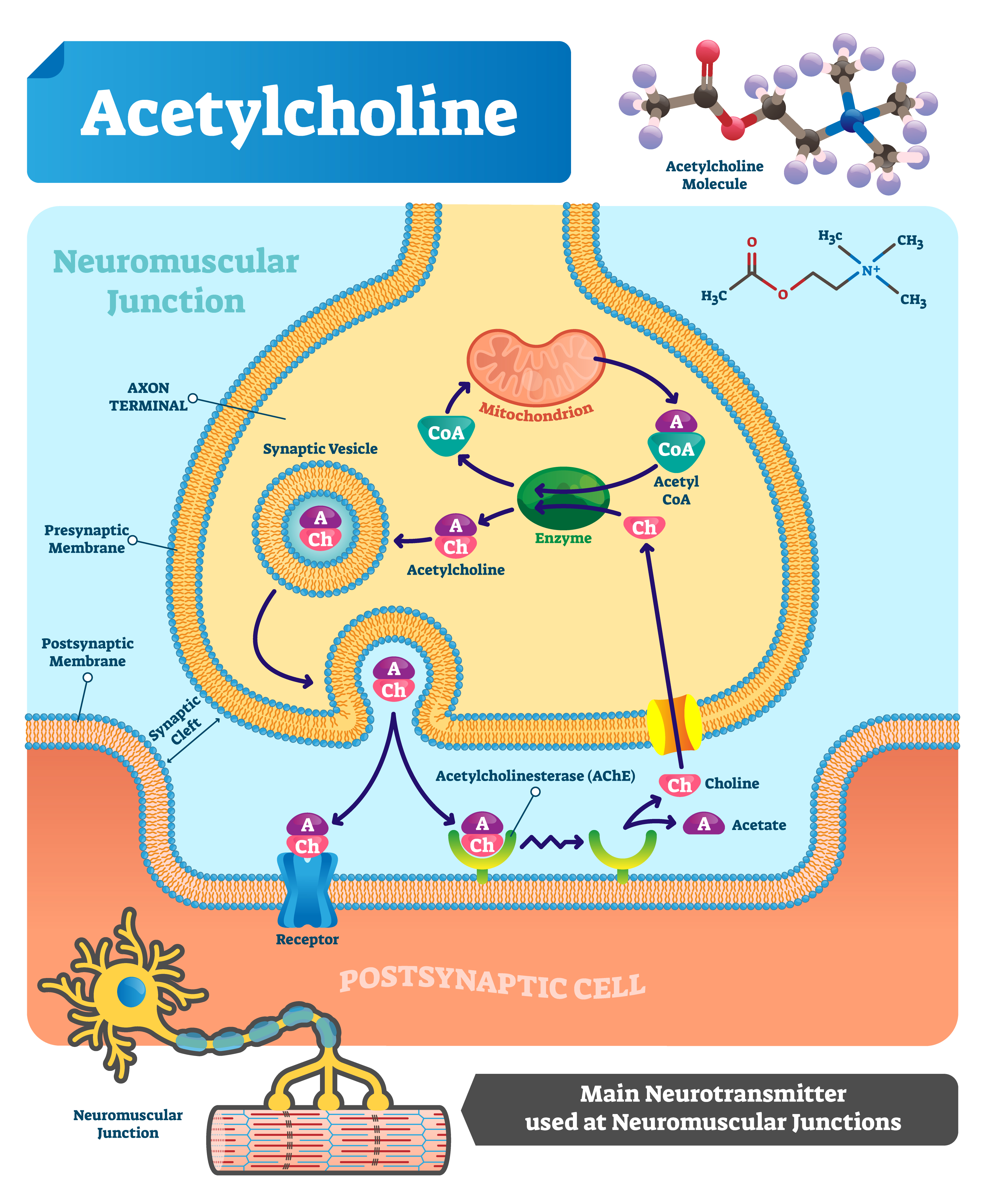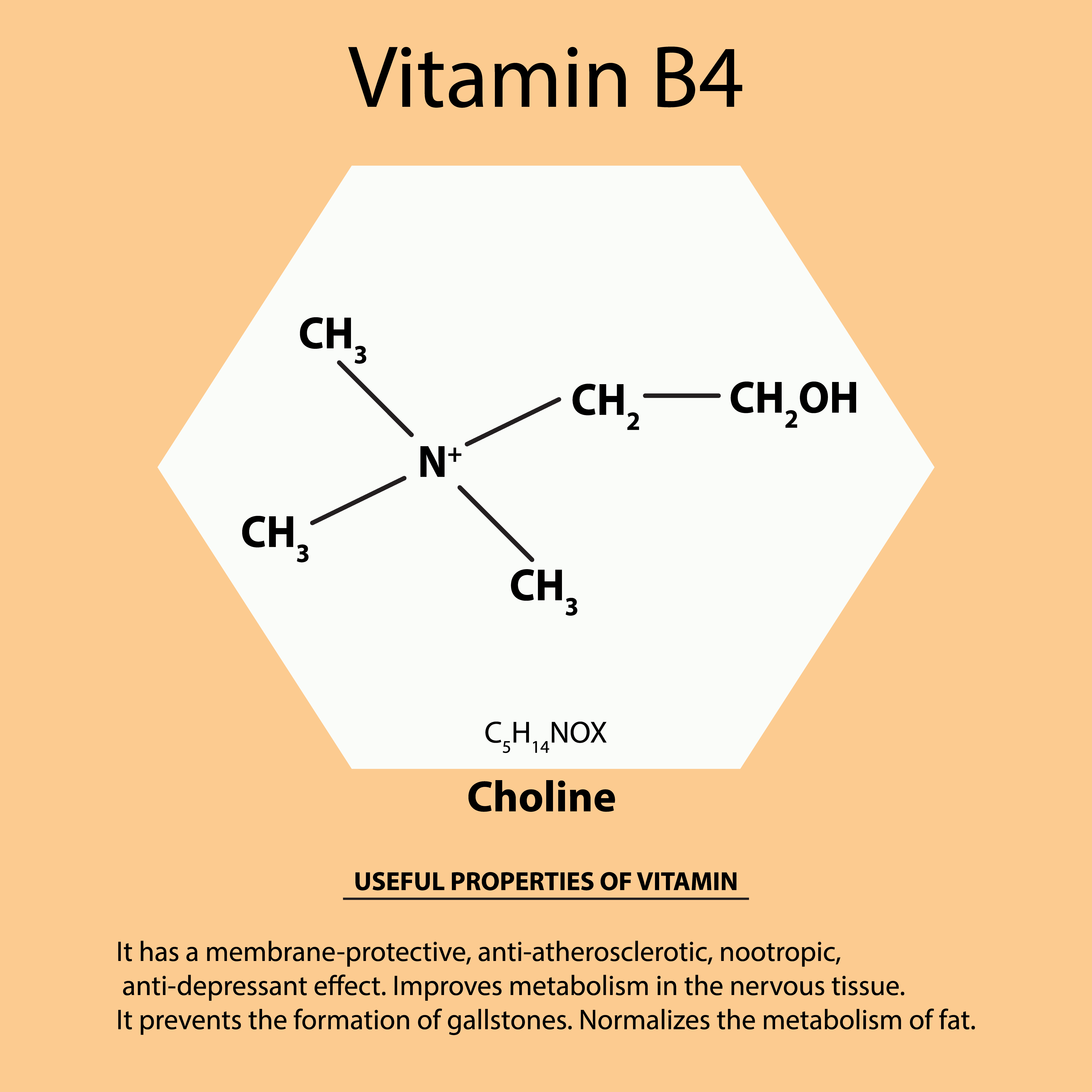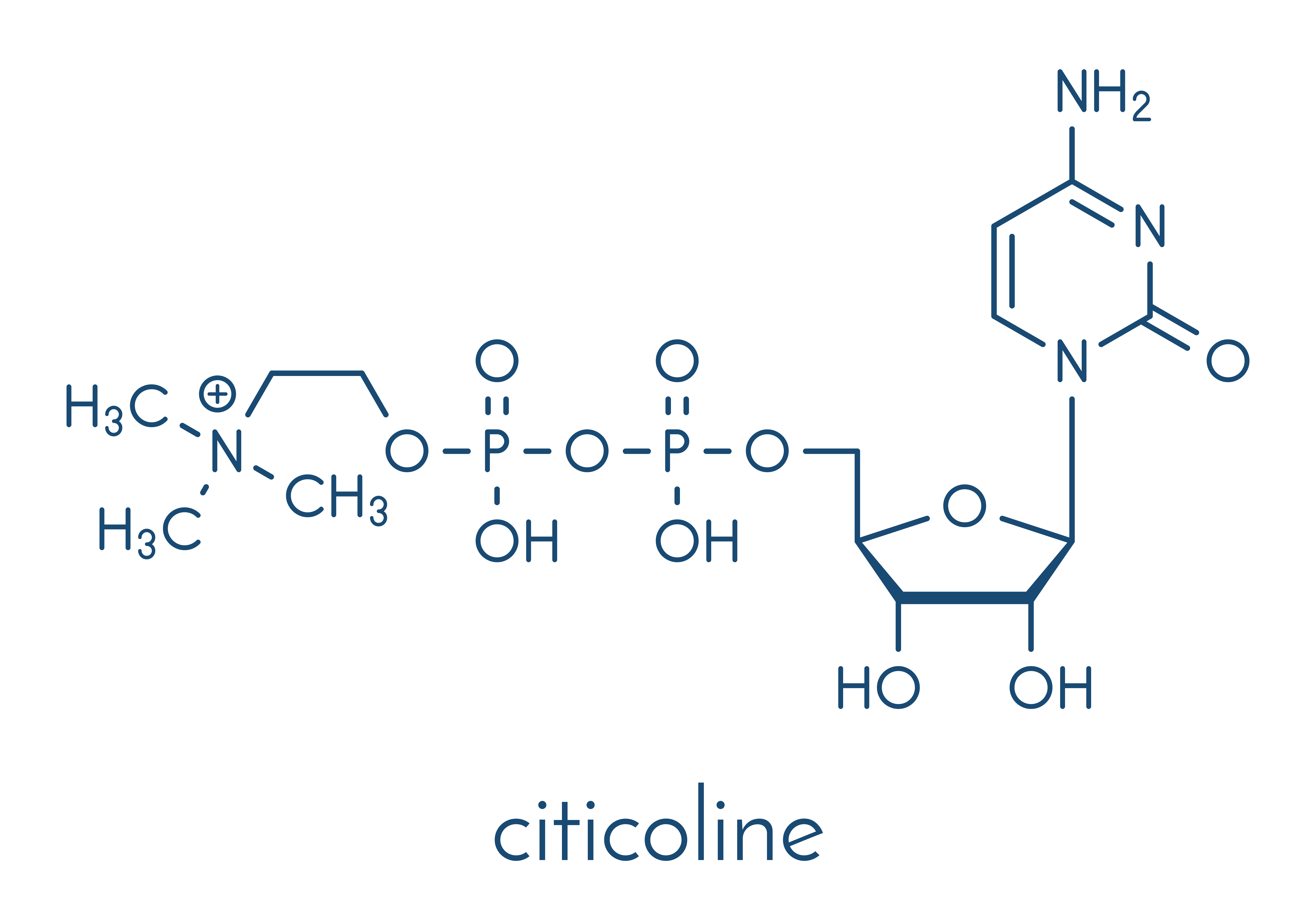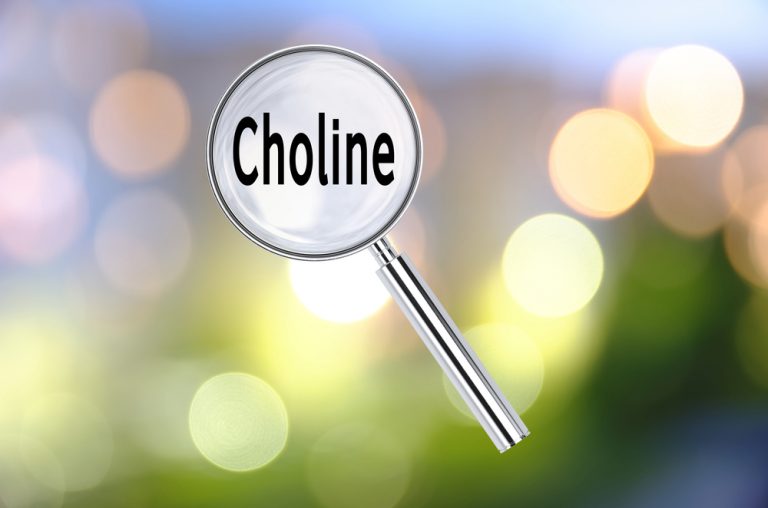Choline is an extremely important nutrient for the human body, which is necessary for the optimal functioning of all cells in our body. It is also a popular addition to various types of dietary supplements. It can be found both in post-training and in nootropic formulas. Sometimes it is also found in less popular products that are adopted during training.
We've already talked about choline several times:
Glycerophosphocholine - Revolutionary workout aid
Choline - characteristics of individual forms
Unfortunately, most people suffer from a deficiency of choline resulting mainly from poor or not very varied diet. In the high-risk group, vegans are especially important because products with the highest choline content are usually of zoonotic origin (milk, meat, eggs and seafood). [1.2]
Choline, as we have already mentioned, can be found in a large range of supplements. It occurs solo, as a separate product, or as part of a more complex formula. Each of these solutions has its own pros and cons, it is difficult to say which option is the best. A lot depends on our individual conditions, diet and the goal that we want to achieve. It should also be remembered that choline itself occurs in several variants, which we will discuss later.
Let's move on to what good brings the optimal choline level in our body. Believe us! The benefits are worth it!

What are the benefits of choline?
As we said at the beginning of this article, choline is essential for the proper functioning of virtually all cells in the body, on many different levels. It is used in the synthesis of phospholipids that support structural integrity and cell signaling functions. [1] A human body can synthesize choline endogenously in the liver (as phosphatidylcholine), but the amount required by the body exceeds the one we are naturally able to produce [12], so it is important to provide the right amount of choline through diet or supplementation.
Choline also serves as a precursor to the synthesis of acetylcholine [1]. Acetylcholine is crucial for memory, mood, muscle control (more specifically for the connection between the mind and muscles) and many other important functions of the brain and nervous system [3,4] Those, who do not have enough of this relationship, may experience difficulties in learning or storing memories due to chronically low levels of acetylcholine.
Choline deficiency can cause serious consequences, including complications in the liver, muscles and lymphocytes [1]. Lack of choline can also affect the expression of genes involved in cell differentiation, proliferation and apoptosis (programmed cell death), as well as adversely affect brain development and nervous systems in growing animals and humans [1,5]. By accepting insufficient choline, you literally program your body to stop developing and start dying. This does not sound appealing, right?
In short, choline is a component that you probably do not want to struggle with. That's why choline supplements are so popular and widely available. When buying a choline supplement, you can choose from several different forms, and knowing which one is best suited to meet your needs will make you choose what you need.

Types of choline
Lecithin
Some food products, such as eggs and soy products, are naturally rich in lecithin. Also highly processed products, such as chocolates, chocolate bars, protein supplements, may contain added lecithin. However, it is in them in quite trace amounts and we should not base our choline supplementation on processed sweets. No matter how inviting it may sound.
Lecithin (derived from soy or sunflower) is actually the only source from which vegans can provide choline. Usually, however, they require additional supplementation to significantly increase the level of acetylcholine [2]. In this situation, lecithin is generally not considered to be an effective adjuvant to cognitive functions, concentration or prevention of some neurodegenerative diseases, as other forms of choline, which we will discuss in a moment. so that you know that if you are a vegan and you want to use lecithin as a source of choline, you need to eat about 100 g of lecithin in order to get a significant increase in choline concentrations [7].
Choline bitartrate
Choline bitartrate is the cheapest and most widely available form of choline to buy. It contains 41% choline, which gives approximately 410 mg of choline for every gram of choline bitartrate you consume. The form with bitartrate is the most commonly used form of choline in pre-workout supplements and nootropic formulations, usually in the 500-1000 mg range. Studies give inconclusive results in terms of its nootropic properties[8,9,10] but confirm its positive effect on liver function and health.
The recommended dose is 1-3g per day
Choline citrate
Another cheaper version of choline is choline citrate. Choline content in citrate is approx. 51%, that is, for every 1000 mg of citrate taken, we deliver 510 mg of choline. There has not been much research on this form of choline with regard to the nootropic benefits, but many users think that it is more effective than the form we wrote earlier due to the increased uptake by the body (better bioavailability of the ingredient).
The study was conducted in patients with multiple sclerosis (MS) who received 1200 mg intravenously twice a week, showed a positive effect on some of the symptoms of this glide [11]. Subjects undergoing treatment experienced less paresthesia and greater muscle strength in the lower limbs, up to three years after completing the test. [11].
Choline citrate is very acidic, so it rarely performs solo. Most often it is mixed with some ingredient with a sweeter taste.
The recommended dose is 1-3g per day
Citicoline (CDP-Choline)
Citicoline, chemically known as Cytidine 5'-diphospholine (CDP-Choline), is one of the best forms of choline. A lot of tests, both on animals and on humans, confirm its nootrope and neuroprotective properties. Citicoline in 18-19% is pure choline, but its nootropic impact is really powerful, because it contains as many as two nootropins (uridine and choline).
During the digestion process, citicoline is broken down into cytidine and free choline. [13] Cytydine quickly transforms into uridine, which can cross the blood-brain barrier and exert its own nootropic benefits. CDP-Choline also occurs naturally in the body and serves as an intermediary in the synthesis of phosphatidylcholine.
Research on Citicoline is quite extensive and impressive. It has been shown to be highly effective in studying the decline in cognitive functions associated with neurodegenerative diseases such as Alzheimer's and Parkinson's, as well as impairment due to cerebral ischemia, stroke and other traumatic brain injuries [14].
Citicoline also increases neuroplasticity, positively affects cognitive function, improves learning ability and increases the production of norepinephrine and dopamine in CNS [15]. This amazing form of choline, CDP-choline, is more expensive than bitartrate and citrate.
The recommended dose is 250-500 mg / day

Alpha GPC
The form of choline that you most often come across is L-alpha glycerophospho-choline (Alpha-GPC). Like the citicoline mentioned above, Alpha GPC is one of the best-studied forms of choline. The big difference is that Alpha GPC consists of 40% choline, while CDP with only 18-19%. Alpha GPC can be found in the brain as well as in dairy products, but is generally synthesized from soy lecithin.
Like CDP-choline, Alpha GPC is thoroughly tested and brings a number of nootropic benefits as well as several other interesting benefits. With regard to nootropic effects, Alpha GPC increases the production of acetylcholine, improves cognitive functions, fights neurodegenerative diseases and improves memory. [16,17,18,19]
As for other benefits, Alpha GPC also increases strength and energy during training and increases the amount of growth hormone (GH) after training. [20,21,22] It can also act as a light stimulant, because it increases the amount of dopamine that reaches the brain [23].
The recommended dose is 200-600 mg a day

Which form is the best one?
Ultimately, the best form of choline boils down to how much you are willing to spend. You can get similar nootropic benefits as with citicholine or alpha GPC, also with choline in the form of salts. These first two forms are more expensive. If you decide to buy cheaper choline in the form of salt, know that you will need at least 2g to experience any significant nootropic effects.
Alpha GPC vs CDP-Choline
There is one study comparing Alpha GPC with CDP-Choline, which showed that Alpha GPC has a better effect on cognitive ability, although both were effective in reducing the symptoms of dementia [30]. Both forms of choline were administered intravenously, not orally, so they are difficult to compare. Aside from the Alpha GPC stomach, it may have increased efficacy because the Alpha GPC portion is metabolized during digestion.
From personal experiences we have noticed the most visible effects using Alpha GDC and CDP-Choline. Although they are more expensive, their effectiveness is worth the price.
Choline-stacks
Although choline is great in itself, it gains a lot from combining it with many other components that interact with it and strengthen its performance.
Caffeine + Choline
Alpha GPC + Smart Caffeine
Caffeine and Alpha GPC greatly affect the mind, but also the performance. [22]
Caffeine is great - it affects energy, mood and focus, and at the same time combines well with choline, which is why some of our favorite nootropic preparations contain both of these ingredients.
Caffeine improves the action of choline in the body, and also inhibits acetylcholinesterase, which causes increased production of acetylcholine, which stays active longer in the body. [24,25]
The recommended dose of caffeine 100-300 mg depending on preference / tolerance
Acetyl-L-carnitine + choline
ALCAR and choline are the perfect pair. Both components form acetylcholine, where ALCAR supplies an acetyl group and choline provides the second part. In addition, you can experience better fat burning and a better gain in muscle mass, at least for people with a deficiency of carnitine (vegans and older people) [26].
The recommended dose of ALCAR 1-2g
Huperzine A + Choline
Acetylcholinesterase breaks down our acetylcholine. Huperzine A helps to slow down this process.
Huperzine is a potent inhibitor of acetylcholinesterase, an enzyme that breaks down acetylcholine. The use of huperzin together with the choline supplement not only increases the production of acetylcholine, but also retains the acetylcholine produced in the body for a longer time.
The recommended dose of Huperzine 100-200 mg
Noopept + Choline
We've written a lot about Noopept and its incredible power before. Noopept if used spontaneously can cause the choline stores to be depleted quickly in the body and may lead to headache [27]. Therefore, it is recommended to use choline together with a noopept.
The recommended dose of Noopept 10-20 mg
Racetam + Choline
Racetams are another class of nootropics that has been popular for some time. There is a wide range of racetams (including phenylpiracetam), but for our purposes we will limit the discussion to piracetam, which is the best studied racetam.
Piracetam is often used to fight injuries, but has also been shown to be effective in healthy adults. Studies on healthy people 2.4g / day (in a single dose or divided into three doses of 800mg) showed better brain function, as evidenced by the reduced complexity of the EEG). 28,29
The recommended dose of piracetam 2.4 g
Summary
Choline is amazing and you should use it every day, even if you're not as big a nootropic fan as we are ...
Because diets become more complicated - from vegan to keto - some of them have serious shortcomings. In this case, vegans are losing, and you definitely do not want to have choline deficiencies. Although basically everyone benefits from the use of choline supplements.
We prefer to use Alpha GPC or CDP-Choline, because these two products seem to exert the most noticeable effects of improving mental focus, attention and cognitive ability. You can use choline in the form of salt, but you need a great dose to work decently. Regardless of what you decide on, one thing is for sure - eat choline every day!
______________________________________________________________________________________________________________
References







2 Comments